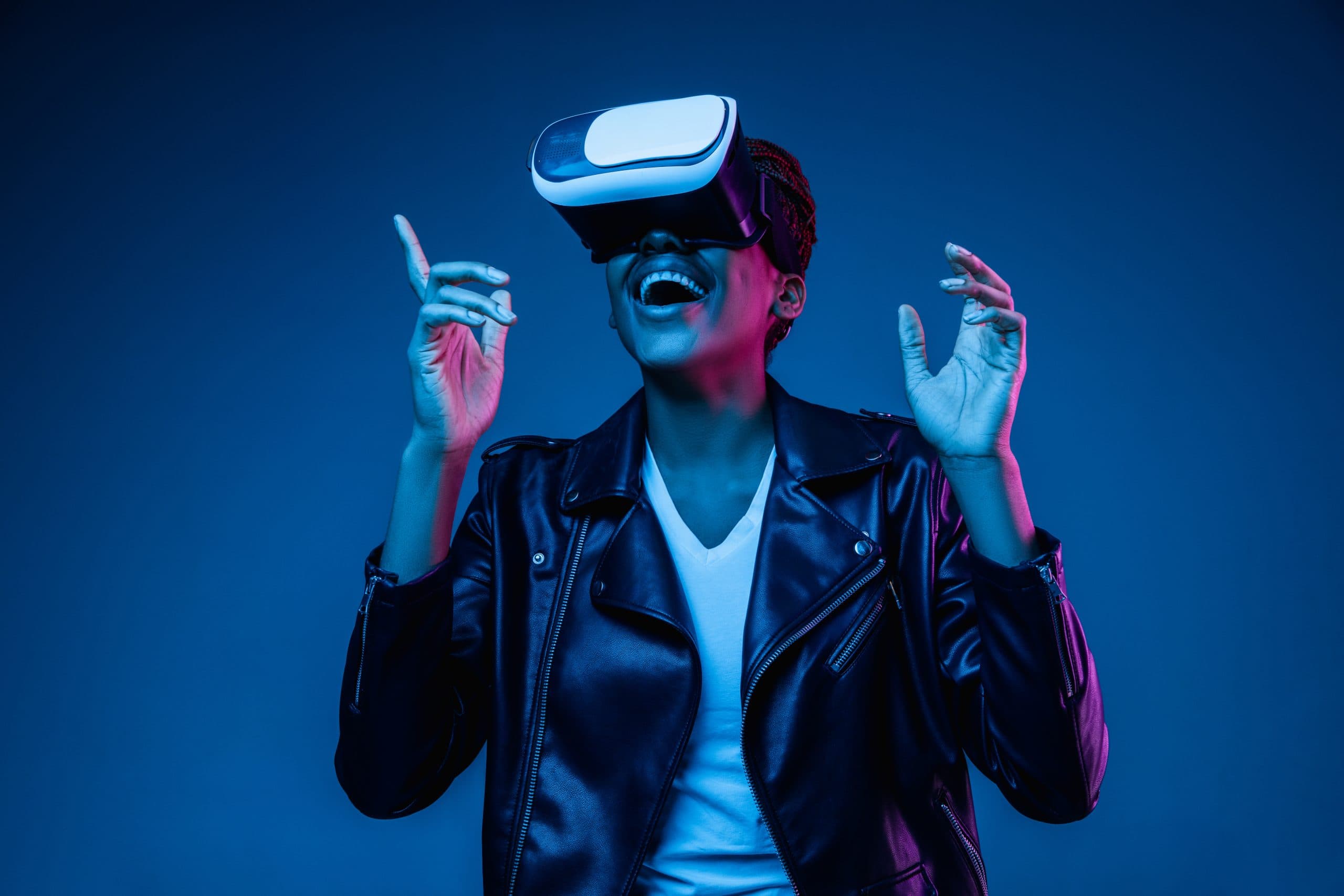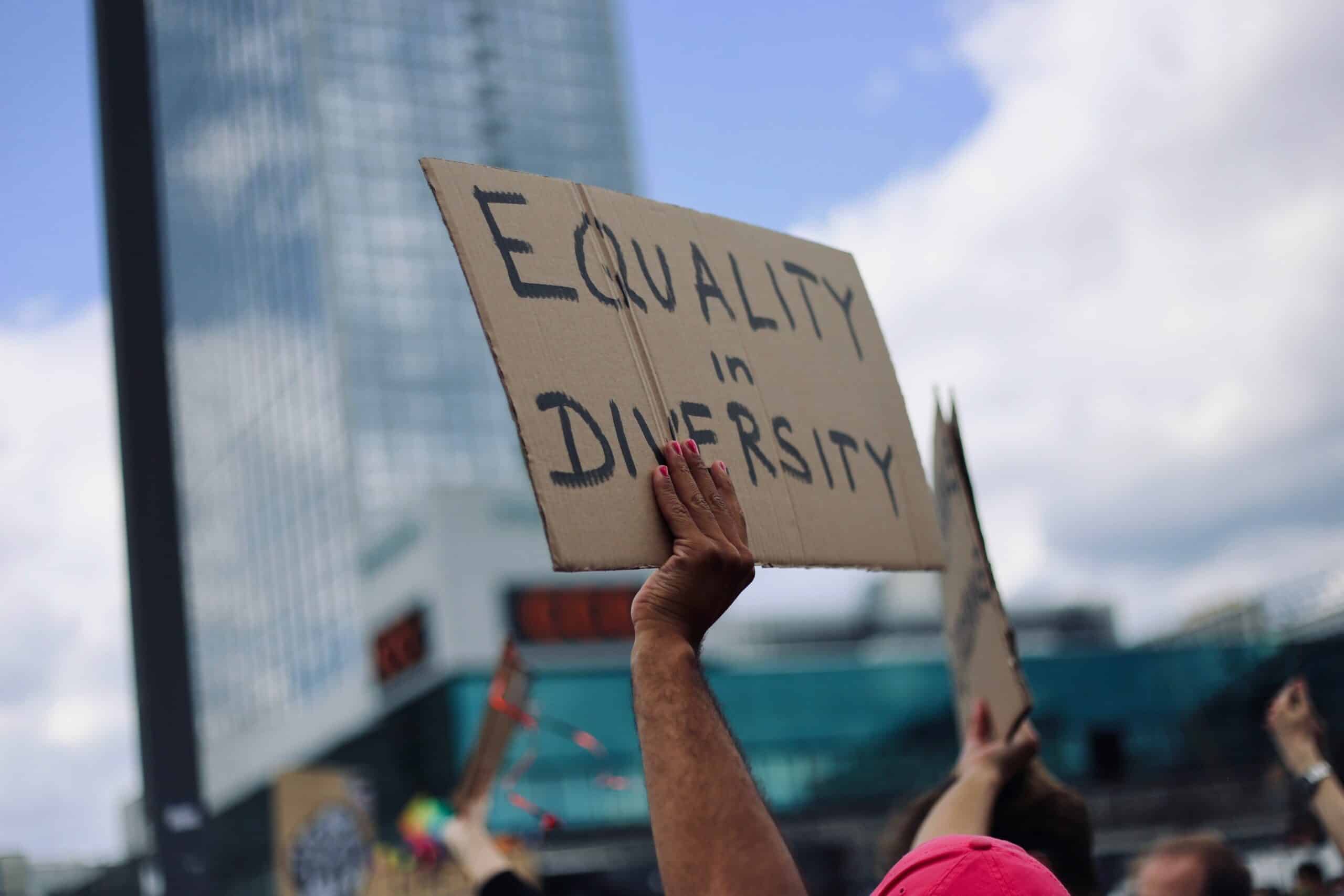Human Resources
HR Trends 2021: Virtuality
4 January 2021

In 2020, we’ve all experienced a flurry of unexpected situations in the face of what many call the pandemic of our lifetime. We have all had to adapt quickly to stay afloat.
Businesses have especially felt this. Many turned their operations upside down as workforces went remote and collaboration shifted to virtual. For many the transition was far from easy.
However, times like these also fuel unparalleled innovation and spark new ways of thinking. For many businesses, this has created opportunities to boost organizational effectiveness and give employees new ways of driving impact in everything they do.
Teams had no choice but to begin working from home during the first lockdown—and some businesses have even kept strict remote working policies until the COVID-19 pandemic winds down. The way people now communicate, collaborate, and stay productive has fundamentally changed thanks to the latest digital tools and technologies reimagining how people work.
As we look back on 2020, we can’t help but take everything we’ve learned from this year and apply those lessons to our approach to 2021.
With our MC Joe Sweeney, we brought together 4 HR experts from around Europe, to discuss the big trends for HR and the workplace in 2021. Below, watch them discuss the theme of Virtuality and its role in HR and the workplace in 2021.
Alexandre Pachulski, author, co-founder and CPO at Talentsoft
Neelie Verlinden, Editor-in-chief of AIHR Digital and Digital Content Manager at Talentsoft
Robindro Ullah, Managing Director at Trendence Institut, HR blogger and Influencer
Debra Corey, Chief ‘Pay it forward’ Officer at Debco HR Limited, Author and Speaker
Video Transcription:
JOE : Before Alex we move on to talking about that first one – Virtuality – we’re going to show a short extract from the film Wall-E, which will help us to paint a picture of what this is all about.
[Short extract from the movie Wall-E: “…and hit a few virtual balls into space. No we did that yesterday, I don’t want to do that. Well then what do you want to do? I don’t know, something wow”.]
JOE: So Alex, what a great picture of the danger that technology poses to actually take-over our lives if we’re not careful. Can you expand on that?
ALEX: Yeah that was a great Pixar movie. It was ten years ago and it’s extremely up to date because actually we’ve been suddenly isolated one from another. Mid-March for most of the countries – we have known this lockdown and that was totally unique for you, for me and for most of us. And it changed everything because from one day to another we had to continue to keep up with our life – personal life – even if it was extremely complicated and we had to re-learn to live differently and we had obviously to keep up with the business and to continue to work, to continue to collaborate. And what we’ve done together, we thought that well actually, since we’ve got so many digital tools let’s use them to continue doing what we were doing before the lockdown. Except that we have quickly understood it didn’t work because what we were used to doing while seeing each other, we didn’t have to think about why it is so important to see each other live. And suddenly we understood that most of the communication was coming from ‘tells’- as they say in poker – things that you don’t mention but that you can see with bodies, with expressions. And we lost all that suddenly. So we wanted to keep up with the large meetings, gathering 15 people. We wanted to keep up with brainstorming and reporting the way we were doing it and we quickly understood that it didn’t work at all because we missed everything that were binding all these elements together. Creating when you don’t see the ‘tells’, you don’t see if someone agrees or not. It’s impossible to create, actually, and so we had to reinvent everything and it took us, I would say, one month. And after one month we understood that: “okay maybe we should design meetings differently. We should design reporting differently.” Suddenly managers that were supposed to have become developers and coaches for 10 years, 15 years about digital transformation…we mentioned that suddenly it had to be because people felt very bad about the lockdown and they were counting on managers for a real “how you doing?” – like Joey and Friends. You know, “how you doing?” And it requires empathy. It requires many things that managers were missing. So if we want to avoid the Wall-E situation – we want not to become slaves of this current situation, slaves of the fact to be isolated – maybe regularly - due to sanitary conditions, and we had to reinvent connections. We want to reinvent the way we work together, we have to reinvent the way we create and so this virtuality thing will be a major challenge for 2021 but probably for the decade to come because it’s not going to stop and when the fourth digital revolution is going to speed up with AI, virtual reality and so on…it will be more important than ever. So let’s consider, in a way, if we want to see the glass half full, that this is the kind of rehearsal for the decade to come.
JOE: It’s definitely brought a lot of those things to the fore and made it a lot faster – things that were already happening – the COVID situation. What I might do is throw to you Debra on this question. In your books you write a lot about being a rebel and challenging the status quo when it comes to how we treat our people. If we’re talking about employee engagement, how does that actually translate to employee engagement in a increasingly virtual world?
DEBRA: Yeah I mean what I talk about with this concept of ‘rebel’ is more of this mindset, and you’ve spoken about it already. It’s about rethinking what we’re doing and how we’re doing it and why we’re doing it and translating it into a virtual world. So, you know, I have a red cape behind me in one of my cupboards and I always talk about putting on your red cape and being a rebel and being brave and trying new things and companies have really embraced technology in this virtual world, and I’ve seen everything and anything out there. From, you know, having competitions, to having quizzes, having parties, to working out – everything and anything. So I do think this rebel mindset is even more important because we all are getting out of our comfort zones and we need to be out of our comfort zones and we need to embrace the chaos, as people say, to try different things. If there was ever a time to experiment it’s now and our employees appreciate everything, even when it doesn’t work out.
JOE: Yes and Alex I think one particular topic that we talk about under virtuality is Artificial Intelligence. I know you speak a bit about the difference between AI for transformation and AI for automation. Can you tell us a little bit more about that?
ALEX: Yes, as I was saying, keeping up with the former practices and trying to turn them digitally doesn’t work. So it means that if it applies to AI – it’s not about automating what we were doing before. If you take for instance the recruiting practices and recruiting processes, it’s not about just productivity and allowing some recruiters to make up time to do something else. It’s about doing things differently because we will need more diversity, we will need some more profiles. We will go and look for skills that probably are not required today for jobs that still do not exist today and so it’s about transformation. And where AI could become extremely important on the labor market, if we take out all the fears about being replaced and some times forgetting that we are the ones educating AI…because machines are not going to become intelligent by themselves. It’s all about assisting people at work. And an interesting example in this lockdown situation we are living in to look at astronauts. They are obviously confined to outer space, with all the fears and all the stuff that you could imagine and there is this AI called Simon which is a robot, who is following and tracking every move of the astronauts in space, because astronauts are very…they are following routines to keep up with a real good mental health and as soon as the AI is detecting something different – a new pattern – then they got to be cautious about this new pattern and that’s when the AI warn kind of psychologist and a bunch of people that something is going on here. And so if astronauts, when they’re confined, need assistants, we could need assistants, because working remotely it’s a new sport and I believe that in this very case…and there are plenty of domains obviously AI could be a kind of assistant like you know in K-2000 with Kit assisting David Hasselhof, it’s really about “is everything okay for you?” Should you make a break here? Should you get in touch with this or this someone? And so it would allow in this very case not only CEOs to get assistants but everyone to be assisted and this is exactly the kind of illustration of a positive AI – an AI that is really designed to support people’s activity and help them to breathe and maybe live in a more decent way and that’s what we are going to have to design in this decade and I really believe it’s starting this year in 2021.
JOE: Great, really interesting insights. Robindro, I wanted to throw to you as well because at Trendence, data-driven talent acquisition is really what you do. What’s your view on AI for transformation and how it relates to talent acquisition?
ROBINDRO: Thank you very much for this very good question and I want to refer to what Debra said in this context because, in Germany at least, HR is a little bit lacking of something which Debra just called ‘rebel mindset’, which is I think crucial for this topic. So HR is discussing the topic for two to three years now – how AI can transform or integrate in the recruitment process and it was just very interesting what you said since it can enhance the process. It can support the recruiters. And at Trendence we also designed a model we called Augmented Recruiter. These are recruiters who use Ai to support the processes, to make better decisions, to help the candidates. But that’s not where we are at the moment. I think this is something which will come in 2021 and since we foresee that this will come this year, in the very beginning we asked the candidates what they think about AI in the recruitment process, and nearly all candidates said that this is a very good idea. They think that the process will get faster, will be more transparent and they think the decisions will be better, better in terms of more transparency.


